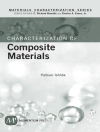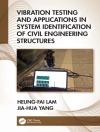This book is to provide readers with up-to-date advances in applied and interdisciplinary engineering science and technologies related to nonlinear dynamics, vibration, control, robotics, and their engineering applications, developed in the most recent years. All the contributed chapters come from active scholars in the area, which cover advanced theory & methods, innovative technologies, benchmark experimental validations and engineering practices. Readers would benefit from this state-of-the-art collection of applied nonlinear dynamics, in-depth vibration engineering theory, cutting-edge control methods and technologies, and definitely find stimulating ideas for their on-going R&D work. This book is intended for graduate students, research staff and scholars in academics, and also provides useful hand-up guidance for professional and engineers in practical engineering missions.
Table of Content
Smart Shock Absorber.- Experimental test on the dynamic damping performance of energy harvesting shock absorbers with overrun clutch under open circuit condition.- Cyber Attacks on Remote State Estimation in Cyber-physical Systems: A Game-Theoretic Approach.
About the author
Dr Xingjian Jing received the B.S. degree from Zhejiang University, Hangzhou, China, the M.S. and the Ph.D. degrees in robotics from the Shenyang Institute of Automation, Chinese Academy of Sciences, Shenyang, China, respectively, and the Ph.D. degree in nonlinear systems and signal processing from the Department of Automatic Control and Systems Engineering, University of Sheffield, Sheffield, U.K.
He is now with the Department of Mechanical Engineering, the Hong Kong Polytechnic University (Poly U). Before joining in Poly U as an Assistant Professor, he was a Research Fellow with the Institute of Sound and Vibration Research, University of Southampton. His current research interests include: nonlinear dynamics, vibration and control, with a series of highly cited research results for understanding and employing nonlinear dynamics in various engineering systems, well known for his parametric characteristic approach for frequency domain analysis and design of nonlinear systems, and the X-shaped structure/mechanism approach for employing nonlinearities in vibration control. Dr Jing is the recipient of a number of academic and professional awards including 2016 IEEE SMC Andrew P. Sage Best Transactions Paper Award, 2017 Tech Connect World Innovation Award in US, 2017 EASD Senior Research Prize in Europe, 2017 the First Prize of HK Construction Industry Council Innovation Award, and 2019 HKIE outstanding paper award.
Dr Jing has published more than 200 refereed papers in the interdisciplinary areas of nonlinear dynamics, vibration and control, with 20 patents filed in China and US, and more than 6300 citations and H-index 41 in google scholar. He currently serves as Associate Editor of IEEE Transactions on Industrial Electronics, & Associate Editor of Mechanical Systems and Signal Processing, and was a Technical Editor of IEEE/ASME Transactions on Mechatronics during 2015-2020. He was the lead editor of a special issue on ‘Exploring Nonlinear Benefits in Engineering’ published in Mechanical Systems and Signal Processing 2019 and is leading the other special issue on “New generation vibration control exploiting nonlinearities” in the same journal.
Dr Hu DING is a professor and the director of the Institute of Vibration Engineering and Control of Shanghai University. He obtained a Ph D degree in basic mechanics from Shanghai University and was nominated for a national outstanding doctoral thesis. He was a visiting professor in the Department of Mechanical Engineering at the University of Toronto in Canada and a visiting scholar in the Department of Mechanical and Materials Science at Duke University in the United States. He is dedicated to nonlinear dynamics and control research. The main research interests are: revealing the nonlinear vibration characteristics of the elastic structure, and introducing nonlinearity through mechanical design for realizing the vibration control. The research work was funded by the “Excellent Youth’ project and the ‘Distinguished Youth’ project of the National Natural Science Foundation of China. As of 2021, more than 200 journal articles have been published. Named as “Highly Cited Chinese Researchers of 2020” by Elsevier.
Dr. Jiqiang Wang is an associate professor of systems control at Nanjing University of Aeronautics & Astronautics. He receives bachelor degrees in both management & mechanical engineering from Xi’an Jiaotong University, China in 2003. He obtains his MSc and Ph D in control systems, both from the University of Sheffield, UK in 2005, 2008 respectively. He then works as a research fellow at the Industrial Control Centre, University of Strathclyde, Glasgow before joining Nanjing University of Aeronautics & Astronautics at the end of 2009.
Dr. Wang’s research interests are in the general area of complex systems modeling, control and health management, with particular application to active control & energy harvesting, smart structures and turbine power systems. Specifically, he developed systematically a geometric design methodology for active control and energy harvesting towards performance limit; and he initiated and proposed a project upon model-based nonlinear control of gas turbine power systems. In these research areas, he has been involved around 30 research projects from various sources as PIs & Co-PIs. He has published over 100 papers, with 10 filed patents and further 13 patents in review.
Dr. Wang is a Committee Member & Secretary of Society of Artificial Intelligence Simulation Technologies, China Simulation Federation (CSF); committee member of Society of Intelligent Aerospace Systems, Chinese Association for Artificial Intelligence (CAAI); Committee Member of Centre for Innovation in Aerospace Technology, NUAA Society for Science & Technology. He has been the recipients for Distinguished Project of Fundamental Research Projects for Central Universities; Distinguished Project of Natural Science Foundation of Jiangsu Province; Best Paper Awards for the 15th Chinese Intelligent Systems Conference (CISC’2019), and Best Paper Awards for the 11th International Conference on Modelling, Identification & Control (ICMIC-2019).












